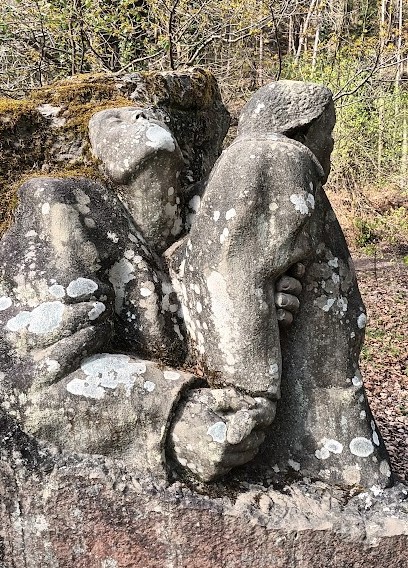On 4 September 1902, the Union colliery near Bixlade, which employed about 100 men, was flooded by a sudden influx of water from abandoned workings raising the water level by 30 feet and drowning four men, Thomas and Amos James, Herbert Gwatkin and William Martin. Three others Thomas Cooper, James Gwilliam and James Hawkins were trapped after they had escaped into some old workings. It was not until 9 September that pumping had reduced the water level sufficiently to allow rescuers to enter the workings and rescue them.
Later in the day, another search party found the bodies of Thomas and Amos James in an upright position and hand in hand. They were also only 15 feet from a passage by which they could have reached the upper airway and safety but having lost their lamps they were unable to see it. Thomas was 27 and married with one child whilst Amos was only 20 and single. The body of 26-year-old Herbert Gwatkin was not found until the following Sunday.
https://lightmoor.co.uk/forestcoal/CoalUnion.html
https://forestofdeanhistory.org.uk/learn-about-the-forest/union-colliery-disaster-memorial/

However, this was not the end of the tragedy. Herbert Gwatkin’s brother, Albert was working in the mine with his brother at the time. The trauma meant that he was never the same again and suffered from anxiety and depression. He suffered a nervous breakdown in 1923 and was away from work for about two months. He stopped work in May 1926 as a result of the lockout and did not return in October because he wanted to look after his mother who had become quite ill. After her death in November, he became depressed again. He could not sleep and his other brother had to spend the nights with him as he was up all night in an agitated state. He attempted to return to work on the surface at Cannop but could not cope. Albert Gwatkin committed suicide in May 1927 by cutting his own throat so severely that his head nearly became dislocated from his body.
After the Union pit tragedy, James Gwilliam moved to Cannop colliery and then later worked at Eastern colliery where, in 1937, he was severely injured and was unable to work again. James Gwilliam’s son, Essau Reuben Gwilliam, was killed in March 1925 while working at a colliery in Pencoid, South Wales when a two and two-and-a-half-ton rock fell on his head. He had a young family of eleven children.